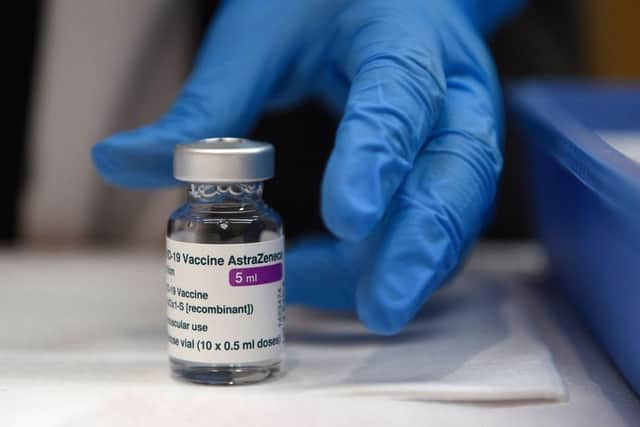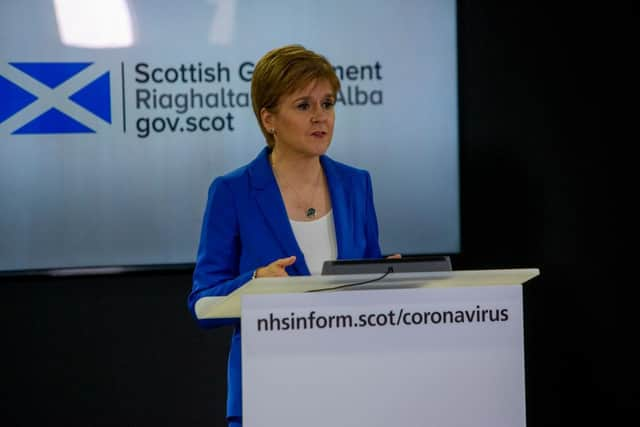Oxford Covid-19 vaccine: Nicola Sturgeon says ‘no evidence’ AztraZeneca jab causes blood clots, as Netherlands and Republic of Ireland pause use
and live on Freeview channel 276
This morning it emerged that the Netherlands and Republic of Ireland had stopped administering the vaccine as a “precautionary measure”, over concerns that it can cause blood clots in some recipients.
Speaking at the Scottish Government’s daily briefing, the First Minister said: “In the UK, the decision to suspend use of the vaccine is a matter for the Medicines and Healthcare Products Regulatory Agency.
Advertisement
Hide AdAdvertisement
Hide Ad“The MRHA has confirmed to us that there is no current evidence of an increase in blood clots being caused by the AstraZeneca vaccine.
“The MRHA is continuing to monitor this carefully and remains in regular contact with other regulators.
“There is, however, significant and growing evidence of the benefits of vaccination reducing death, illness and we hope now reducing transmission as well.
She added: “For all these reasons and based on the advice and opinion of the MRHA, I’d continue to urge people to come forward for vaccination including with the AstraZeneca vaccine when you are invited to do so.”
Advertisement
Hide AdAdvertisement
Hide AdMs Sturgeon added that, as of Monday morning, 1,908,991 people have now received their first dose of a coronavirus vaccine, up 20,294 from yesterday, and 161,945 received their second dose.


Her comments echo those of Dr Phil Bryan, vaccines safety chief at the MHRA, who said: “We are aware of the action in Ireland.
“We are closely reviewing reports but given the large number of doses administered, and the frequency at which blood clots can occur naturally, the evidence available does not suggest the vaccine is the cause.
“People should still go and get their Covid-19 vaccine when asked to do so.”
Advertisement
Hide AdAdvertisement
Hide AdAstraZeneca said its review had found no evidence of an increased risk of pulmonary embolism, deep vein thrombosis (DVT) or thrombocytopenia, in any defined age group, gender, batch or in any particular country.


The company said available safety data in more than 17 million people who have been vaccinated across the UK and EU has shown no evidence of an increased risk.
A message from the Editor:
Thank you for reading this article. We're more reliant on your support than ever as the shift in consumer habits brought about by coronavirus impacts our advertisers.
If you haven't already, please consider supporting our trusted, fact-checked journalism by taking out a digital subscription.
Comment Guidelines
National World encourages reader discussion on our stories. User feedback, insights and back-and-forth exchanges add a rich layer of context to reporting. Please review our Community Guidelines before commenting.